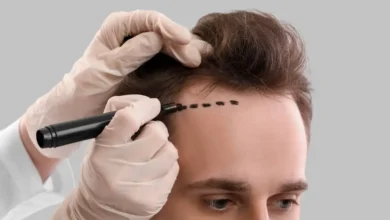Black Female Therapist Leading Mental Health Support for Women

Black female therapists play a crucial role in mental health care by offering culturally competent support tailored to the unique experiences of Black individuals. They bring insight into racial and gender-related challenges that can deeply impact emotional well-being.
Many clients seek Black female therapists because they provide a safe space where cultural identity is understood without explanation. This connection can improve trust and therapy outcomes, especially for those who have struggled to find relatable mental health professionals.
Understanding the importance of representation in therapy helps break down barriers around stigma and accessibility. Black female therapists contribute to a more inclusive mental health landscape that acknowledges diverse perspectives.
Benefits of Working With a Black Female Therapist
Working with a Black female therapist offers unique advantages rooted in shared cultural experiences and perspectives. Clients gain support tailored to their specific needs related to race, gender, and identity. This relationship often fosters deeper understanding and stronger emotional connections.
Culturally Competent Care
Black female therapists frequently bring a heightened awareness of cultural nuances that impact mental health. They understand traditions, values, and community dynamics that influence a client’s worldview.
This expertise helps clients feel seen and respected beyond their symptoms. It reduces the risk of cultural misunderstandings that can hinder therapy progress.
Culturally competent care includes recognizing the role of systemic racism and historical trauma in mental health challenges. This approach allows for therapeutic methods that align with the client’s background and lived experiences.
Understanding of Racial and Gender-Based Stressors
Black female therapists are often familiar with the specific stressors Black women face, such as discrimination, microaggressions, and societal expectations. They can validate these experiences and address their psychological impacts directly.
Their expertise allows them to identify how intersecting identities of race and gender shape stress responses and coping mechanisms. This insight leads to more relevant treatment strategies.
Clients benefit from discussions that acknowledge and explore the impact of racial and gender biases in personal, professional, and social contexts. This increases emotional safety and growth.
Building Trust and Connection
Trust is critical in therapy, and shared identity can accelerate connection. Many clients report feeling more comfortable and less defensive with Black female therapists.
This comfort supports honest communication and vulnerability. It encourages clients to explore deeper issues that might be difficult to discuss otherwise.
The therapist’s lived experience can foster empathy and relatability. This connection often results in a collaborative therapeutic relationship where clients feel supported and understood.
See also: Improving Your Financial Health With Bookkeeping Hqorner
How to Find the Right Black Female Therapist
Finding a therapist involves clear goals, thorough research, and thoughtful questions. It requires identifying personal needs, searching credible sources, and evaluating compatibility through consultations.
Identifying Your Therapy Goals
The first step is defining what you want from therapy. This may include managing anxiety, addressing trauma, or improving relationships. Clear goals help narrow the search to therapists with relevant expertise.
Consider the type of therapy you prefer, such as cognitive-behavioral therapy, talk therapy, or somatic approaches. Also, think about whether cultural understanding or shared experiences are important. These factors guide the selection of a Black female therapist who aligns with your needs.
Write down specific issues, desired outcomes, and any preferences about therapy styles. This clarity makes discussions with potential therapists focused and efficient.
Exploring Directories and Online Resources
Professional directories like Psychology Today or Therapy for Black Girls provide filters to find Black female therapists by location, specialty, and insurance. These sites often include bios, qualifications, and fees.
Local community centers, universities, and nonprofit organizations may offer lists of Black therapists. Social media groups and forums centered on mental health can also offer referrals and personal experiences.
Verify credentials, licensure, and areas of expertise during the search. Confirm whether the therapist offers in-person or virtual sessions and their availability. Insurance and sliding scale fees are crucial details to consider early on.
Questions to Ask During Consultations
Prepare questions that evaluate clinical style and personal fit. Examples include:
- What is your experience working with clients from similar backgrounds?
- How do you handle cultural factors in therapy?
- What is your approach to trauma or anxiety?
Ask about session frequency, confidentiality, and cancellation policies. It helps to discuss how progress is measured and what happens if therapy goals change.
Observe how comfortable communication feels during the consultation. A good therapist provides clear answers and creates a safe space for honest dialogue.




